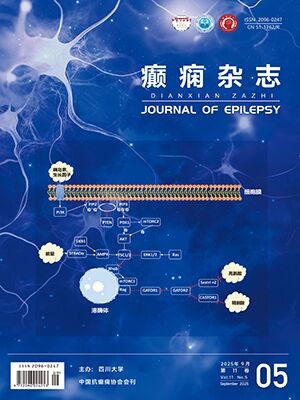| 1. |
Rutten GJM, Ramsey NF, Van Rijen PC, et al. Development of a functional magnetic resonance imaging protocol for intraoperative localization of critical temporoparietal language areas. Annals of Neurology, 2002, 51(3): 350-360.
|
| 2. |
Meier M P, Ilmberger J, Fesl G, et al. Validation of functional motor and language MRI with direct cortical stimulation. Acta Neurochirurgica, 2013, 155(4): 675-683.
|
| 3. |
Babajaniferemi A, Narayana S, Rezaie R, et al. Language mapping using high gamma electrocorticography, fMRI, and TMS versus electrocortical stimulation. Clinical Neurophysiology, 2016, 127(3): 1822-1836.
|
| 4. |
Black DF, Vachha B, Mian A, et al. American society of functional neuroradiology–recommended fmri paradigm algorithms for presurgical language assessment. American Journal of Neuroradiology, 2017, 38(10): E65-E73.
|
| 5. |
Binder JR. Functional MRI is a valid noninvasive alternative to Wada testing. Epilepsy & behavior, 2011, 20(2): 214-222.
|
| 6. |
Szaflarski JP, Gloss D, Binder JR, et al. Practice guideline summary: use of fMRI in the presurgical evaluation of patients with epilepsy. Neurology, 2017, 88(4): 395-402.
|
| 7. |
Wada J, Rasmussen T. Intracarotid injection of sodium amytal for the lateralization of cerebral speech dominance: experimental and clinical observations. Journal of Neurosurgery, 1960, 17(2): 266-282.
|
| 8. |
Janecek JK, Swanson SJ, Sabsevitz DS, et al. Language lateralization by f MRI and Wada testing in 229 patients with epilepsy: rates and predictors of discordance. Epilepsia, 2013, 54(2): 314-322.
|
| 9. |
Arora J, Pugh K, Westerveld M, et al. Language lateralization in epilepsy patients: fMRI validated with the Wada procedure. Epilepsia, 2009, 50(10): 2225-2241.
|




